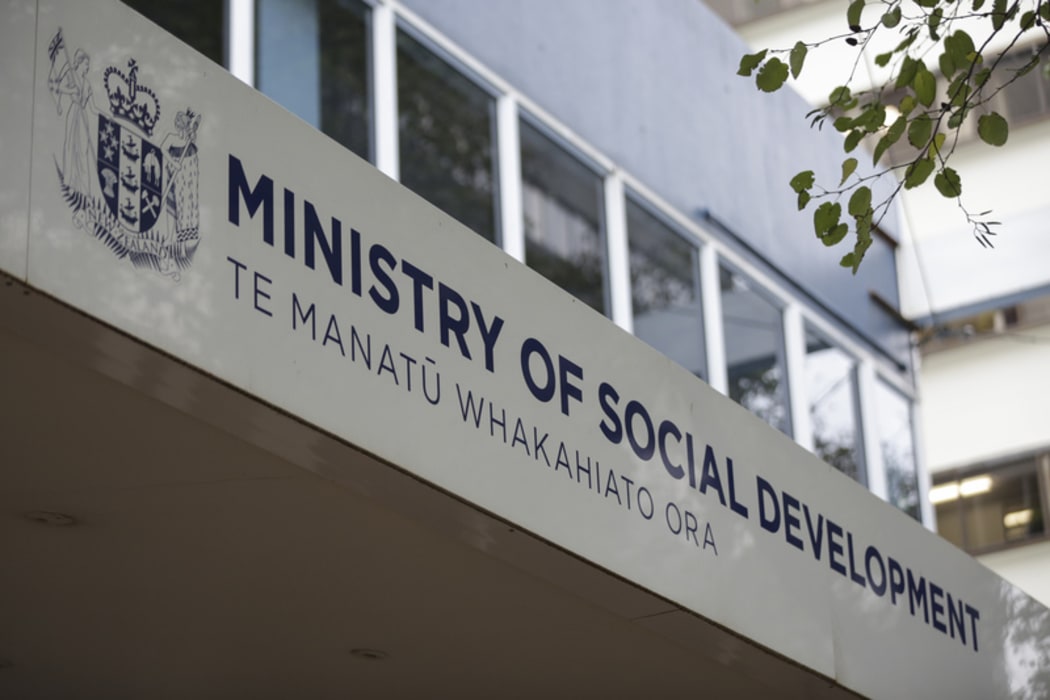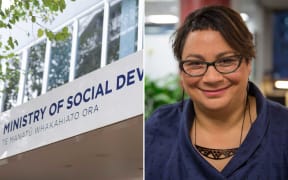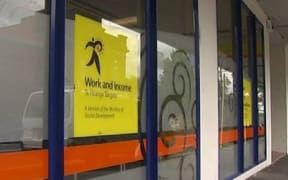Choosing between paying the rent and putting food on the table is life for many sole parents reliant on a benefit.

Photo: RNZ / Rebekah Parsons-King
Following Green Party co-leader Metiria Turei's admission she lied to Work and Income while on the domestic purposes benefit, some sole parents have spoken out about their struggles to make ends meet.
For nearly two years, Wellingtonian Juliet, 31, and her daughter, who's two-and-a-half, have been subsisting on the sole parent benefit, plus whatever work she can fit in.
She receives about $480 a week from the benefit, accommodation supplement and a Working for Families tax credit, of which $380 goes on rent.
"I make sure that my daughter is provided for, that she eats, that she has nappies and formula, and I live on literally $10 a week for my own food. Last year between May and December I went from a size 14 down to size 6."
However, she said trying to get ahead through part-time work as a PA and dealing with the bureaucracy actually cost her money
"Sometimes it can take two-to-three months to even get an appointment. During that time either you can say to them, 'Well just cut me off until I sort this out' or you keep receiving it and when you go in for your appointment you have to pay back a whole lot of money, that you don't have.
"They are currently taking $20 a week out of the money they give me to repay money that they have overpaid me."
Rotorua sole parent Rena, who went on the sole parent benefit in 2013 after moving back to New Zealand from Australia, said the process had been humiliating at times.
"It was quite confusing because you get so many different case officers and then they don't really look at your circumstances.
"It's quite shameful when you have to go there and explain your circumstances, when they should already know the circumstances from the previous interview."
Rena, who is studying part-time, recently switched to a student allowance after she worked out she was better off on that.
However, no-one at Work and Income told her this, she said.
She had seen people get unfairly penalised for missing appointments because they did not have a phone or transport.
Even accessing and paying for photocopies of documents demanded by case managers was difficult for some, she said.
"I guess I'm more fortunate than many because I have a car and access to internet services because I'm studying."
Olive McRae from Dunedin, whose children are now five and 12, is gutted to be back on a benefit after a couple of years working as a union advocate for people dealing with the welfare system.
Paid work meant not having to choose between paying the rent and having food, and not always driving with the petrol light on, she said.
"I'm back in the position of being on a benefit and it's a really scary prospect. I look at my children, I do the best I can for them, I am a good mother and it just saddens me that 30-plus years of neoliberalism has indoctrinated society to kick beneficiaries."
Ms McRae said she admired Metiria Turei and other people for highlighting the inequities with the system.
"Of course she's going to be persecuted and of course people are going to attack her for telling her truth. When you switch the conversation to tax evasion and the wider issue and where the money actually goes, the real money, not the extra $20 a week or something that a beneficiary may be getting, you know, the conversation is shut down."
South Auckland lawyer Catriona MacLennan said the system was punitive and weighted against beneficiaries, thousands of whom were not getting their full legal entitlements.
The Green Party estimated the total debt owed by beneficiaries was at about $200 million, compared with the $3.2bn child support debt.
In the 2015 Budget, the government announced it would write off up to $1.7bn in penalties owing for child support.
Ms MacLennan said the Ministry for Social Development had spent more than $100,000 and 15 years pursuing one chronically ill beneficiary for a debt she claims she should never have had.
"What MSD is kind of expecting is that the moment there's any hint of a relationship, then the man should assume financial responsibility, not only for you but for all your children and I mean that's just not how things work.
"I've had a Work and Income employee say to me about one of my clients that she shouldn't be having sex when she was on the DPB. [There's] just an incredible level of intrusion and invasion and sort of moralistic monitoring of what women's lives are like."
A fairer system would be to base benefits on individual entitlement - what a parent actually needed to support their family, she said.
As of 30 June, there were 60,631 individuals on the sole parent benefit - down 4791 on the same time last year.







